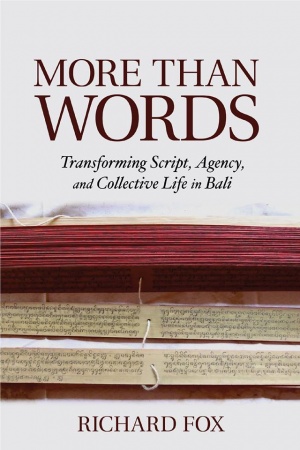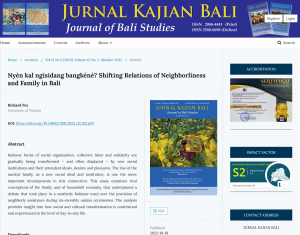I am an anthropologist by training, though my teaching and research tend to cut across traditional disciplinary boundaries—in pursuit of questions pertaining to the historical and ethnographic study of religion, media and performance in South and Southeast Asia. More specifically, my work has primarily focused on Indonesia and the wider Malay region. I also have a longstanding interest in the philosophy of the human sciences.
Before coming to Victoria, I taught for six years at the Institut für Ethnologie, Ruprecht-Karls-Universität Heidelberg, where I was a member of the collaborative research initiative on Material Text Cultures. There I completed the Habilitation in Anthropology. I have also held research and teaching positions at the University of Chicago, Harvard University, Williams College and Universitas Udayana.
As to academic training, I completed the doctorate in both Anthropology and Religious Studies at the School of Oriental and African Studies (2002). Prior to this I had taken an MA in Oriental and African Religions (SOAS, 1995), with formal examinations in Sanskrit language, Indian philosophy and Buddhist Studies. My BA was in Religious Studies at the University of California, Santa Barbara (1994).
Dr. Fox’s full profile is available at:
https://www.uvic.ca/humanities/pacificasia/people/faculty/profile/fox-richard.php








Enable comment auto-refresher